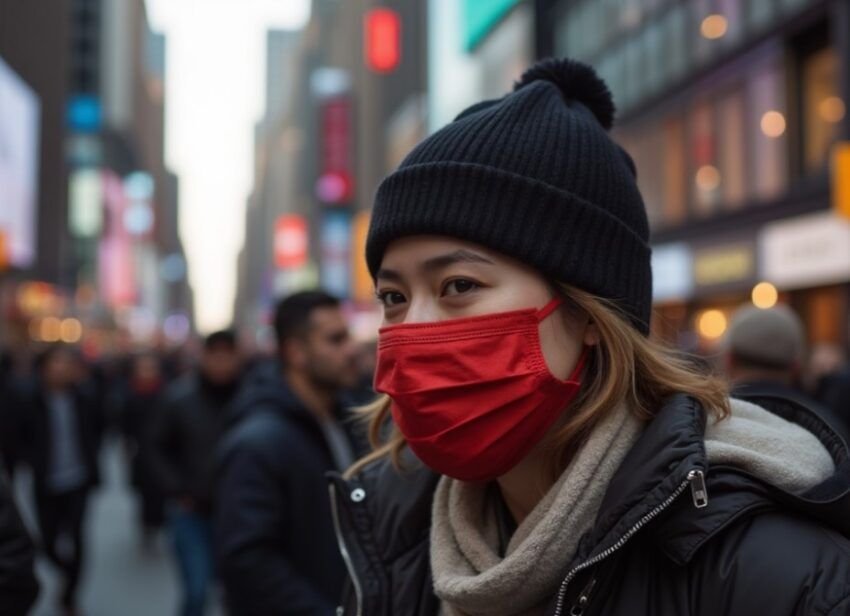
China Joins France, Spain, Italy, Greece, Brazil, and the UK in Facing Deadly Virus Issuing Major Travel Advisories That is Undermining Tourism with New Crisis

China Joins France, Spain, Italy, The Chikungunya virus, transmitted by mosquitoes, has made a significant resurgence in 2025, particularly in parts of China and Europe. Over 8,000 cases have been reported in Foshan, Guangdong Province, China, sparking extensive vector control efforts. The virus has spread to popular tourist destinations in France, Spain, Italy, and Greece, with increasing cases in Paris, Barcelona, Rome, and Athens. In Brazil, Venezuela, and Colombia, the Oropouche virus, spread by midges, has been reported in cities like Caracas, Bogotá, and Quito. Meanwhile, Mpox remains a concern in New York City, London, Toronto, and Madrid, with ongoing outbreaks despite the 2023 declaration that the global emergency was over. The West Nile virus has resurfaced in New York City, Rome, Athens, and Barcelona, while Dengue fever continues to affect Bangkok, San Juan, Manila, and Kuala Lumpur. The Zika virus also persists in Rio de Janeiro, Mexico City, Havana, and Santo Domingo, particularly concerning for pregnant women. As these viruses spread, travelers are urged to take precautions such as using mosquito repellent, wearing protective clothing, and staying in air-conditioned accommodations to minimize the risks of infection.
Chikungunya Virus: A Resurgence in Asia and Europe
The Chikungunya virus, transmitted by mosquitoes, has seen a significant resurgence in 2025, especially in parts of China and Europe. This virus causes fever, joint pain, and rash, making it a major health concern for tourists visiting regions where the disease is active.
Advertisement
Countries and Cities Affected
- China: In Foshan, Guangdong Province, over 8,000 cases have been reported, prompting mass quarantines and extensive vector control efforts.
- France, Spain, Italy, Greece: The European Centre for Disease Prevention and Control (ECDC) has warned of increased cases in popular tourist cities like Paris, Barcelona, Rome, and Athens.
Details
Chikungunya is primarily spread through mosquito bites, particularly by the Aedes mosquitoes. In 2025, large outbreaks have been recorded, with several European cities now seeing rising numbers of cases. To curb the spread of the virus, local authorities are intensifying vector control measures, including the use of insecticides and the release of mosquito-eating fish. Travelers to these areas are advised to use mosquito repellent, wear protective clothing, and opt for accommodations with air conditioning or screened windows to reduce the risk of bites.
Oropouche Virus: Expanding Beyond Tropical Regions
The Oropouche virus is primarily transmitted by midges, but mosquitoes may also play a role in its transmission. Traditionally found in tropical areas, the virus has been expanding to new regions, affecting travelers to South America and parts of Europe.
Countries and Cities Affected
- Brazil: Large outbreaks have been reported in several regions, with significant case numbers in the Amazon.
- Venezuela: Caracas, the capital city, has seen a sharp increase in cases.
- Colombia: Bogotá and other regions have also reported high numbers of infections.
- Ecuador: Quito has become a hotspot for Oropouche virus transmission.
Details
Oropouche virus is largely transmitted by biting midges, but its spread to new areas raises concerns about the increased risk of international transmission. While most cases occur in tropical areas, recent reports have suggested that the virus may be spreading to Europe, with cases detected in the United Kingdom. Travelers to South America should take precautions to avoid midge bites, especially in rural and tropical areas. These measures include using insect repellent and staying in places with proper mosquito control.
Mpox (Monkeypox): Ongoing Concerns for Travelers
Despite the global mpox outbreak being declared over by the World Health Organization (WHO) in 2023, cases continue to be reported in various countries. Mpox, a viral disease that leads to flu-like symptoms and a rash, remains a concern for travelers, particularly in areas with ongoing outbreaks.
Advertisement
Countries and Cities Affected
- United States: New York City remains a hotspot for ongoing cases, especially in high-risk communities.
- United Kingdom: London has seen sporadic cases linked to international travel.
- Canada: Toronto continues to report cases among travelers and those in close contact with infected individuals.
- Spain: Madrid has had cases of mpox in recent months, particularly in certain social groups.
Details
Mpox is transmitted through close contact with infected individuals, particularly through bodily fluids or respiratory droplets. Although the outbreak is no longer at a pandemic level, travelers to regions with active cases should avoid close contact with anyone showing symptoms. Preventive measures include maintaining good hygiene, avoiding crowded areas, and following local health advisories.
West Nile Virus: A Resurgence in Urban Areas
West Nile Virus (WNV), primarily transmitted by mosquitoes, has resurfaced in several urban areas, including cities in the United States and parts of Europe. This virus can cause a wide range of symptoms, from mild flu-like illness to severe neurological disease, making it a significant health concern for travelers in affected regions.
Countries and Cities Affected
- United States: New York City has reported the first human cases of West Nile Virus for 2025 in August.
- Italy: Cities like Rome have seen an uptick in reported cases.
- Greece: Athens and surrounding areas are witnessing a rise in infections.
- Spain: Outbreaks have also been recorded in Barcelona.
Details
West Nile Virus is transmitted through the bite of an infected mosquito, and symptoms can range from mild to severe. Travelers in affected regions are advised to protect themselves by using mosquito repellent, wearing long-sleeved clothing, and avoiding outdoor activities during peak mosquito activity, typically at dawn and dusk.
Dengue Fever: Persistent Threat in Tropical Regions
Dengue fever, a viral disease transmitted by mosquitoes, remains a major concern in tropical regions worldwide. The disease continues to cause outbreaks in several countries, particularly in Southeast Asia and the Caribbean, where it has become a significant public health issue.
Countries and Cities Affected
- Thailand: Bangkok remains one of the most affected cities, with a large number of cases reported in recent months.
- Puerto Rico: San Juan has seen a high number of dengue cases, particularly in densely populated urban areas.
- Philippines: Manila is experiencing a dengue surge as the rainy season continues.
- Malaysia: Kuala Lumpur has reported several dengue outbreaks in tourist districts.
Details
Dengue fever causes symptoms such as high fever, joint pain, severe headaches, pain behind the eyes, and a rash. In some cases, it can lead to severe complications. To avoid dengue, travelers should use mosquito repellent, wear protective clothing, and stay in accommodations with air conditioning or screened windows.
Zika Virus: A Threat in Latin America and the Caribbean
Zika virus, which is transmitted by mosquitoes, has been a recurring issue in Latin America and the Caribbean. While the Zika outbreak of 2015-2016 raised global awareness, the virus remains a concern for travelers to affected regions.
Countries and Cities Affected
- Brazil: Rio de Janeiro continues to report several Zika cases.
- Mexico: Mexico City has experienced periodic outbreaks, especially during the rainy season.
- Cuba: Havana has seen a resurgence of Zika cases, prompting increased health surveillance.
- Dominican Republic: Santo Domingo and surrounding areas have been flagged for potential outbreaks.
Details
Zika virus can cause mild symptoms, but the virus is most concerning for pregnant women, as it can lead to birth defects. Preventive measures include using insect repellent, wearing long-sleeved clothing, and staying indoors during peak mosquito activity.
Preventive Measures for Travelers
With these viruses spreading across various regions, it is crucial for travelers to take proactive measures to minimize the risk of infection. The following steps can help ensure a safe and healthy journey:
- Use Insect Repellent: Travelers should apply repellent containing DEET, picaridin, or oil of lemon eucalyptus to protect against mosquito-borne viruses.
- Wear Protective Clothing: Long-sleeved shirts and long pants should be worn, especially during dawn and dusk when mosquitoes are most active.
- Stay in Screened or Air-Conditioned Accommodations: This helps reduce exposure to mosquitoes and midges.
- Avoid Close Contact with Infected Individuals: Especially important for diseases like mpox.
- Stay Informed: Travelers should monitor health advisories from organizations like the CDC and WHO to stay updated on the latest developments regarding emerging viruses.
As the world navigates through 2025, travelers must remain vigilant about the spread of new and re-emerging viruses. While destinations like China, Brazil, and Thailand offer unique experiences, they also pose health risks due to the presence of mosquito-borne viruses like Chikungunya, Oropouche, and Dengue. Furthermore, diseases such as mpox and West Nile Virus continue to affect regions globally. By following recommended preventive measures, travelers can reduce the risk of infection and continue to explore the world safely.
As always, staying informed and being prepared is key to protecting one’s health while traveling. By taking necessary precautions, travelers can enjoy their trips without putting themselves at risk of these potentially dangerous diseases.
Sources
New York Post
Pan American Health Organization
Travel Health Pro
Hawaii State Department of Health
Centers for Disease Control and Prevention (CDC)
Times of India
The Sun
World Health Organization (WHO)
European Centre for Disease Prevention and Control (ECDC)
The Economic Times
PMC (PubMed Central)
GOV.UK
Spain Spain Spainv Spain Spain Spain Spain Spain Spain Spain Spain











